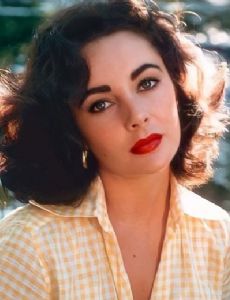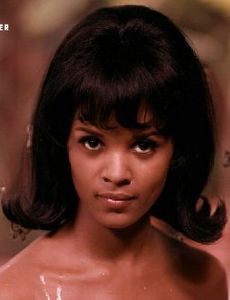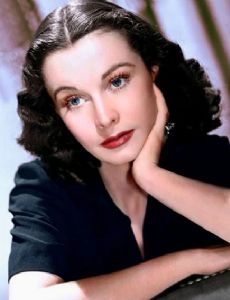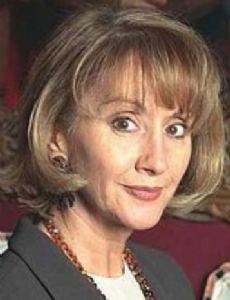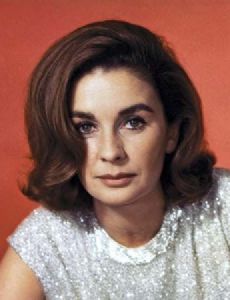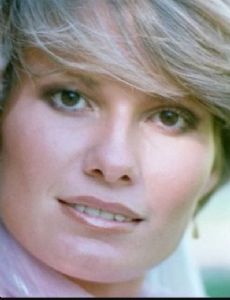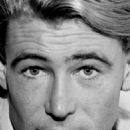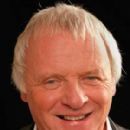Richard Burton, CBE (; born Richard Walter Jenkins Jr.; 10 November 1925 – 5 August 1984) was a Welsh actor. Noted for his mellifluous baritone voice, Burton established himself as a formidable Shakespearean actor in the 1950s, and he gave a memorable performance of Hamlet in 1964. He was called "the natural successor to Olivier" by critic and dramaturge Kenneth Tynan. A heavy drinker, Burton's purported failure to live up to those expectations disappointed some critics and colleagues and added to his image as a great performer who had wasted his talent; he is nevertheless widely regarded as one of the most acclaimed actors of his generation.
You can find people similar to Richard Burton by visiting our lists Stroke-related deaths in Switzerland and Special Tony Award recipients.
| Full name at birth | Richard Walter Jenkins Jr.
|
||
| Claim to fame |
|
||
| Date of birth | 10 November 1925
|
||
| Place of birth | Pontrhydyfen, Wales UK
|
||
| Date of death | 5 August 1984
|
||
| Age | 58 (age at death)
|
||
| Place of death | Celigny, Geneva, Switzerland
|
||
| Cause of death | Cerebral Hemorrhage
|
||
| Occupation | Actor, Producer, Director
|
||
| Occupation category | |||
| Nationality |
PERSONAL DETAILS
| Height | 5' 10" (178 cm)
|
||
| Build | |||
| Hair color | |||
| Eye color | |||
| Gender | |||
| Ethnicity | |||
| Sexuality | |||
| Religion | |||
| Zodiac sign | |||
| Distinctive feature |
|
||
| Pets |
|
ADDITIONAL DETAILS
| Net worth | $50,000,000 USD
|
||
| High school |
|
||
| University | Oxford University
|
|
|
| Talent agency |
|
||
| Political affiliation |
|
||
| Political party |
|
- The producers of the film Equus (1977), who envisioned either Marlon Brando or Jack Nicholson in the role of the psychiatrist "Martin Dysart" in the film version, would only consider Burton for the role if he agreed to undertake a screen-test of sorts by playing the role on Broadway. Though considered one of the most brilliant theatre actors of his generation, Burton had not been on the professional stage in a dozen years (though he had appeared in an Oxford Undergradate Dramatic Society production of Doctor Faustus (which subsequently was filmed as Doctor Faustus (1967)) in 1966. Having suffered a slew of failures since 1970 that had undermined his bankability as a movie star, Burton agreed to take on the grueling role for a 12-week run. Though he was scheduled for his Broadway debut on a Sunday, he took over a Saturday matinée for the departing Anthony Perkins (who had received excellent notices after taking over for Anthony Hopkins, Burton's fellow Welshman who had grown up in his neighborhood in Wales and who had won a 1975 Drama Desk Award Outstanding Actor in a Play for originating Dysart on Broadway). The film producers frankly were worried that Burton's alcoholism, which had nearly killed him during the production of The Klansman (1974), had not only destroyed his powers as an actor but his stamina also. Their fears were borne out the first night when a nervous Burton stumbled during the matinée. However, by Sunday's show, with the vultures out to see a great actor brought low, Burton wowed the audience with a brilliant performance. Burton astounded theatre-goers and the critics, winning himself a Special Tony Award and the role in the film. (His run was extended another two weeks due to demand to see the legendary thespian and hell-raiser and easily could have gone on for many more weeks had Burton chosen to remain with the play.) Burton's career was recharged. The momentum of Burton's professional renaissance nearly brought him an Academy Award in 1978, but sadly, it was reckoned that the performance caught on film by director Sidney Lumet was only a pale shadow of the genius that had been on show on Broadway. (Ironically, this was the charge that had plagued Burton in his early career, that the talent, the genius, did not come through the lens to be caught on film. Burton himself said he did not learn to act on film until he co-starred with Elizabeth Taylor in Cleopatra (1963).) Reverting to his 1970s habit of poor film choices, such as Exorcist II: The Heretic (1977) and The Medusa Touch (1977) tarnished Burton's newly burnished lustre too and Richard Dreyfuss beat him for the Oscar in his seventh (and last) Oscar nomination. Although he worked steadily until his death, Burton's post-Equus (1977) career never gained any real traction and he never again was a bankable star.
- According to his long-time friend Brook Williams, the son of the man who had given Burton his first professional break Emlyn Williams, Burton turned down a role in The Sea Wolves: The Last Charge of the Calcutta Light Horse in 1980, which reunited The Wild Geese (1978) director Andrew V. McLaglen, screenwriter Reginald Rose and co-star Roger Moore. The Wild Geese (1978) had been a big hit (Burton was always popular and a box office draw in military roles) and Andrew V. McLaglen had directed Burton's post-The Wild Geese (1978) film Steiner - Das eiserne Kreuz, 2. Teil (1979), but Burton turned it down. Brook Williams believed that Burton's third wife, Susan Hunt, didn't want Burton away on a lark with his old friends (and drinking companions) as he was in frail health and battling alcoholism at the time.
- While playing Dr Dysart on Broadway in 1976 Burton was so impressed by co-star Peter Firth that he offered to play the Friar with Firth as Romeo. Firth did play Romeo on stage, but Burton was not cast.
- His mother died when he was two-years old. He was taken in and raised by his older sister, Cis, and her husband in the same Port Talbot, Wales, neighborhood where fellow Welshman Anthony Hopkins later lived in as a child. "I shone in the reflection of her green-eyed, black-haired gypsy beauty," Burton said of his sister/surrogate mother.
- While filming Nineteen Eighty-Four (1984), he suffered from a terrible pain in his neck and had to wear a neck brace during rehearsals. He had to wear heavy make up in the film, since the director felt he looked twenty years older than his age. He minimized his famous voice for the part of O'Brien, although he had great difficulty remembering the lines and would sometimes require nearly forty takes to get a scene right. The result was one of his most critically acclaimed performances, and well as his most underplayed.
More...
- Albums (17) keyboard_arrow_right
- Songs (223) keyboard_arrow_right
- Quotes (80) keyboard_arrow_right
- Trivia (140) keyboard_arrow_right
- Pictorials (37) keyboard_arrow_right
- Magazines (178) keyboard_arrow_right
- Photos (729) keyboard_arrow_right
- Lists (58) keyboard_arrow_right
- Filmography (278) keyboard_arrow_right
- Awards (30) keyboard_arrow_right
- Forum (24) keyboard_arrow_right
- Fans (58) keyboard_arrow_right
This page is the FamousFix profile for Richard Burton. Content on this page is contributed by editors who belong to our editorial community. We welcome your contributions... so please create an account if you would like to collaborate with other editor's in helping to shape this website.
On the Richard Burton page you will be able to add and update factual information, post media and connect this topic to other topics on the website. This website does skew towards famous actors, musicians, models and sports stars, however we would like to expand that to include many other interesting topics.








![Peter O'Toole - Yours Retro Magazine Pictorial [United Kingdom] (June 2024)](http://img3.bdbphotos.com/images/130x130/z/2/z2llpw15aocxlo1.jpg?skj2io4l)
![Peter O'Toole - Yours Retro Magazine Pictorial [United Kingdom] (June 2024)](http://img3.bdbphotos.com/images/130x130/0/3/03aswx0l6ry1wl3y.jpg?skj2io4l)
![Peter O'Toole - Yours Retro Magazine Pictorial [United Kingdom] (June 2024)](http://img3.bdbphotos.com/images/130x130/7/0/70l9j21x0jbt20lt.jpg?skj2io4l)
